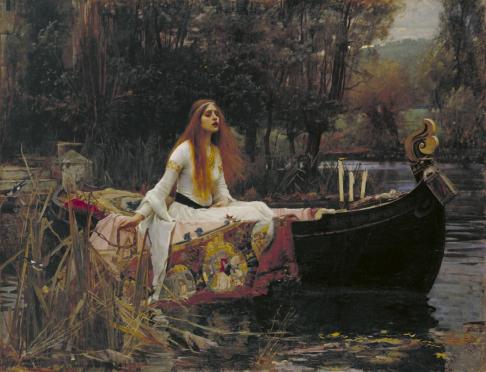French erotic drama “Young and Beautiful” (Jeune & Jolie), directed by Francois Ozon, is one of my favourite films. The plot revolves around a seventeen year old girl Isabelle (played by Marine Vacth) who loses her virginity whilst at the seaside holiday in the south of France with a German boy Felix. The experience leaves her unsatisfied and she further retreats into her inner world. She ignores Felix and speaks to no one about her feelings. Upon returning to Paris, the school starts again in autumn and everything seems the same as usual, but something inside Isabelle is restless and curious. She starts working as a high class prostitute and meets many strange and interesting clients in luxury hotels. According to Isabelle’s own words, to her it was all “just an experience”. One of her clients, a sixty-three year old rich man called Georges, treats her with a special tenderness and a mutual affection develops between them. On one occasion Georges dies in the act of making love. Isabelle flees the hotel room frightened and sad.
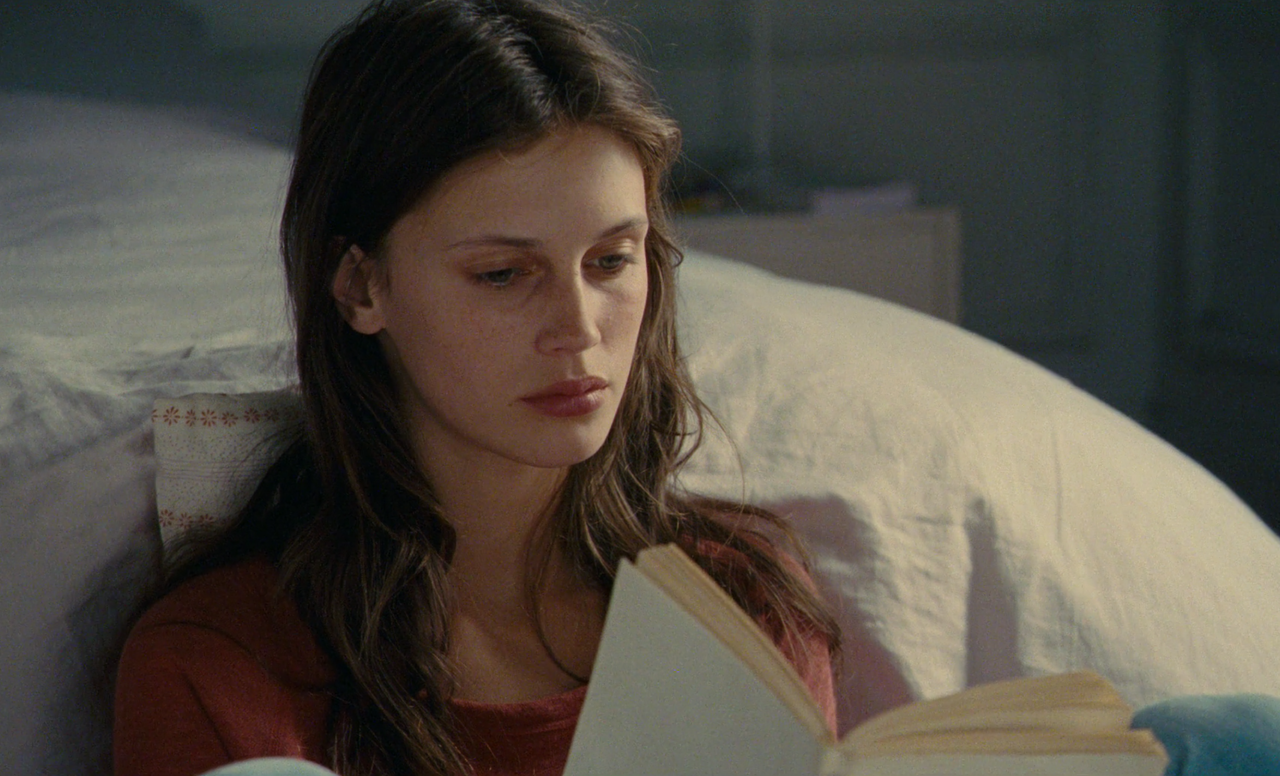
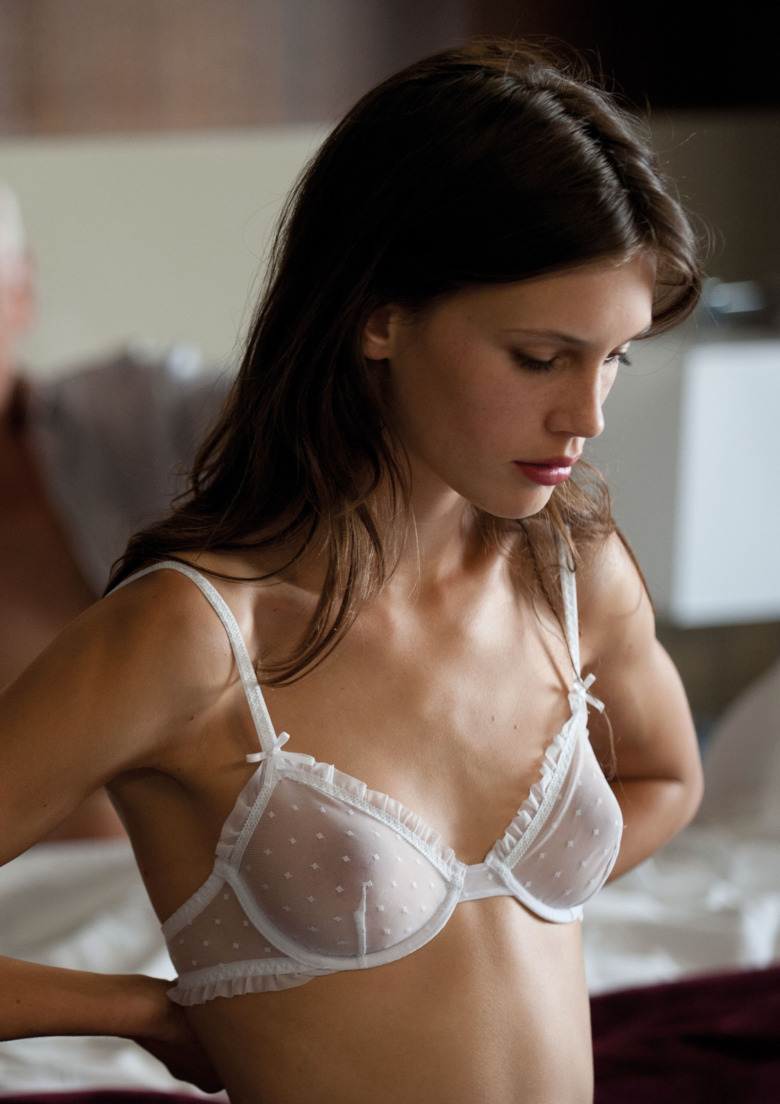
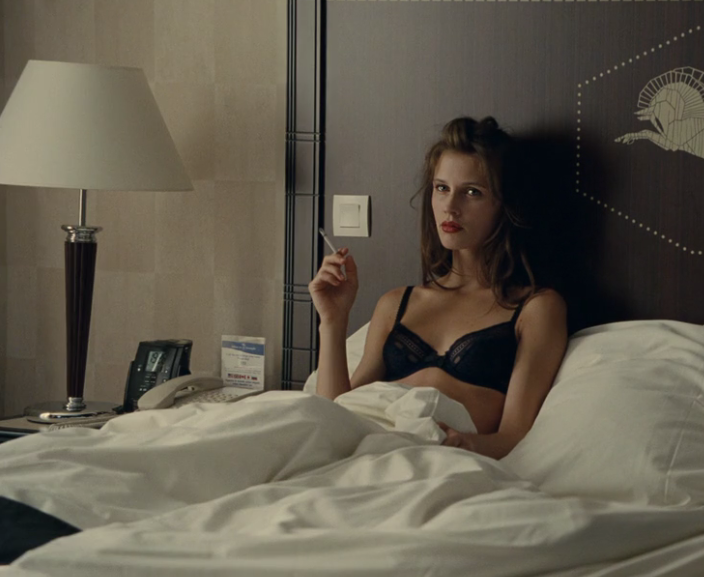
Very soon, her double life and her secrets are discovered by the police and then by her mother and stepfather. Isabelle is forced to go to a therapy and starts pondering on the nature of everything she did. In her own words: “What I liked was to arrange appointments. Chat online, talk on the phone. Listen to the voices, imagine things. Then go, discover the hotel …not knowing who I would find. It was like a game. At the time I almost felt nothing. But then, when remembered at home or in high school… I wanted to do it again.” The film is very erotic and follows Isabelle’s awakening sensuality and her explorations with sexuality through prostitution which could have ended up as a dangerous experience, but what captivates me the most about the film is Isabelle’s impenetrable inner life, her melancholy and her mysterious aura. From the beginning of the film, it is impossible to pinpoint how exactly Isabelle feels. She is quiet and withdrawn and eerily detached from everything that happens to her; from the loss of her virginity to her experiences in the hotels. She is there physically, but she isn’t really there in other ways. It’s like nothing touches her. When her mother found out about her daughter’s double life and deceits, she is furious and starts hitting Isabelle on two occasions actually, and Isabelle’s reaction is still: nothing. There are tears in her blue-grey eyes, but the reaction is never there. Her detachment is both serene and frightening.
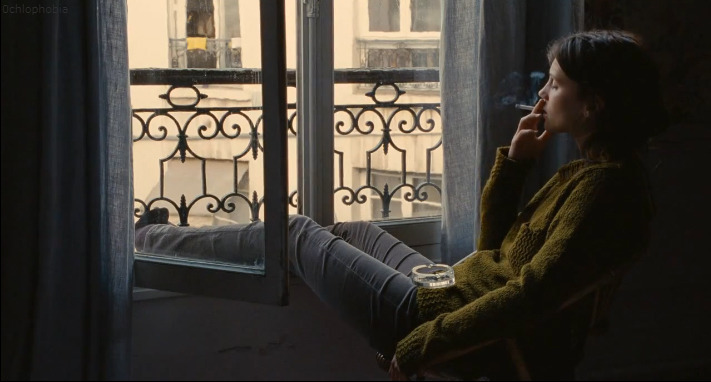
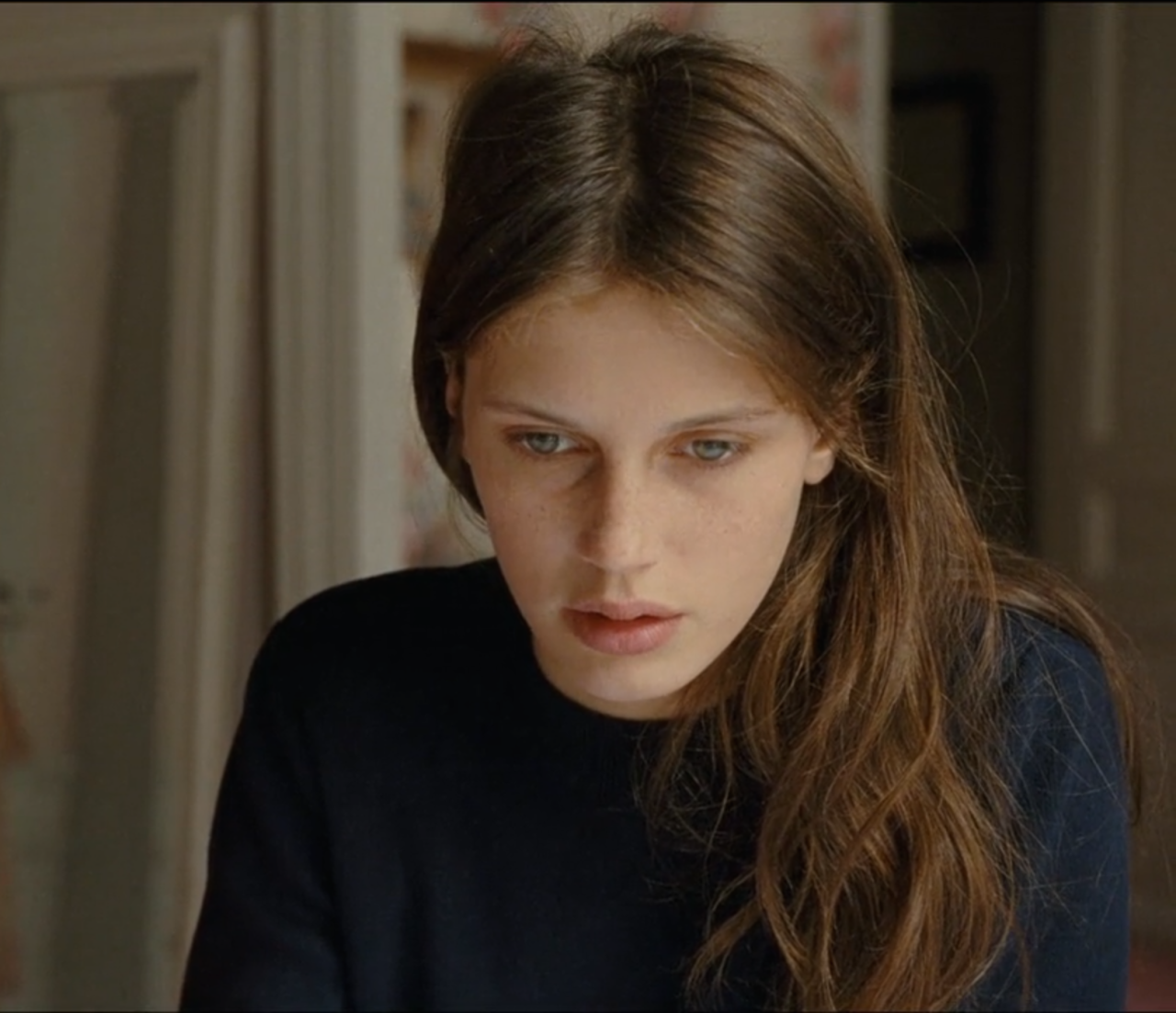
The actress Marine Vacth is gorgeous to gaze at and I think she was a perfect choice for the role. She looks equally beautiful with no make up, her under eye circles and freckles add to her melancholy vibe. And yet, she is enchanting with red lipstick as well. Her appearance in the film matches the double life that she is living; at school she is a quiet, strange girl and her silence is off putting to boys her own age, but in the afternoon she is transformed into a creature of awakened sensuality who does unimaginable things. She is, as the title of the film suggest, young and beautiful. Her beauty and youth are a weapon by which she gains the admiration and desire of the men she meets, but her beauty also serves as a mask which makes her so distant and unreachable, it brings to mind Brancusi’s sculpture “Sleeping Muse” (1910).
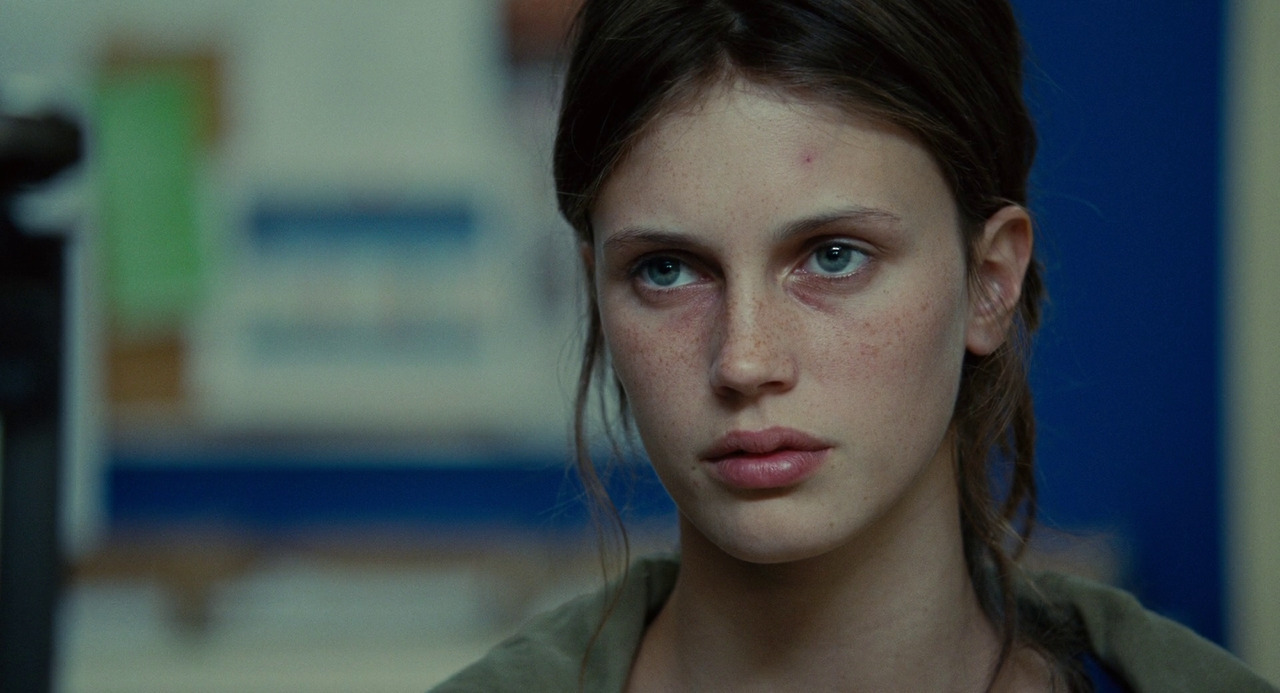
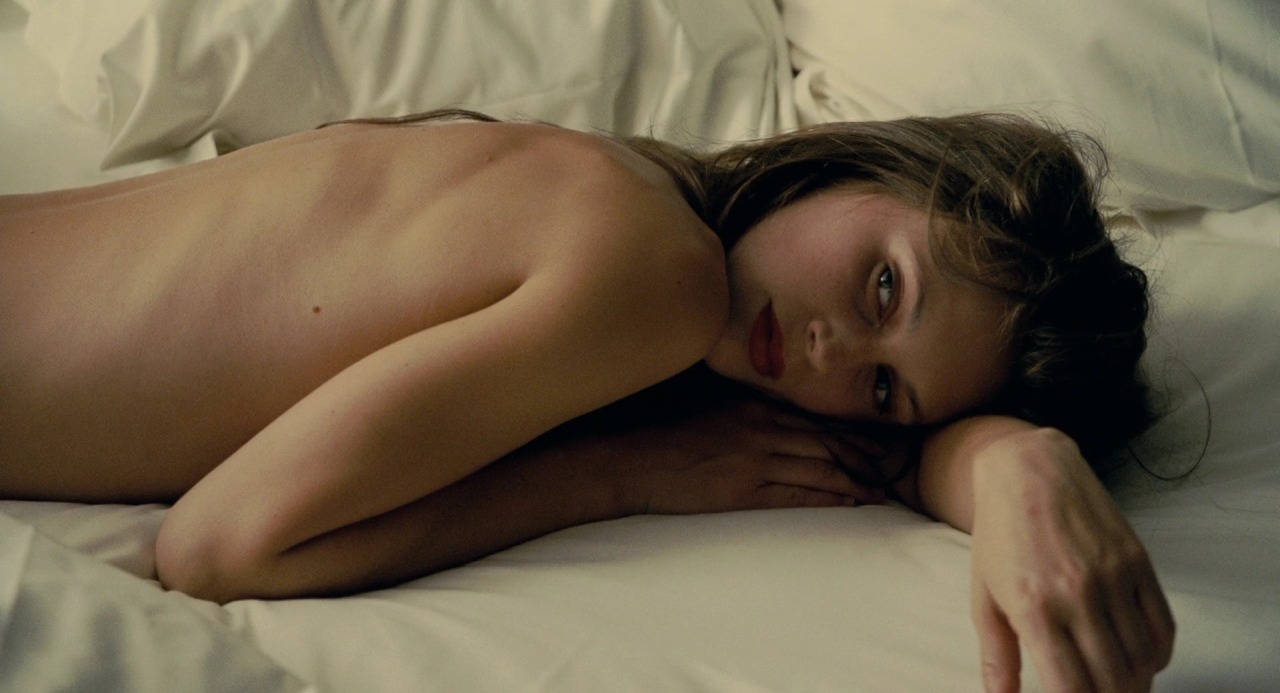
I also enjoyed that Rimbaud’s poem “Novel” is used in the film in a scene where Isabelle and her classmates recite it in school classroom and analyse it. The poem’s verse: “No one is serious at seventeen” goes well with Isabelle’s crazy life decisions; she is but a young girl and she doesn’t know what she is doing. It’s a fascinating contrast that Isabelle is shy and quiet in school, but in reality she is living a life more wild and dangerous than any of her classmates. It’s always the quiet ones in the class who are hiding something. Francoise Hardy’s song “L’amour d’un garcon” is also very fitting; it plays as the background on the car ride from the holiday back to Paris, Isabelle is gazing through the window and thinking of everything that has happened to her as Francoise Hardy sings “J’ai bien changé”… and indeed Isabelle has changed and will change even more as the film continues. What I liked the most about the film is that it doesn’t give definite answers, nor does it condemn Isabelle’s behaviour. She never says “I did it because of….” So even we as observers are left with uncertainly. Isabelle cannot even explain her behavior herself.


